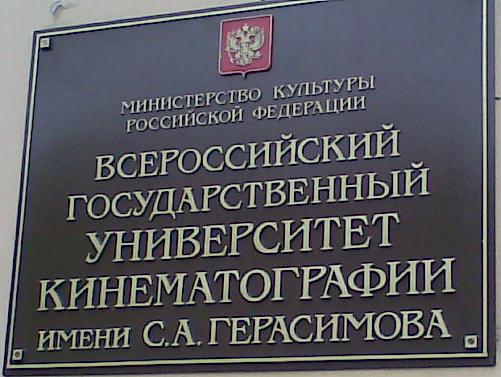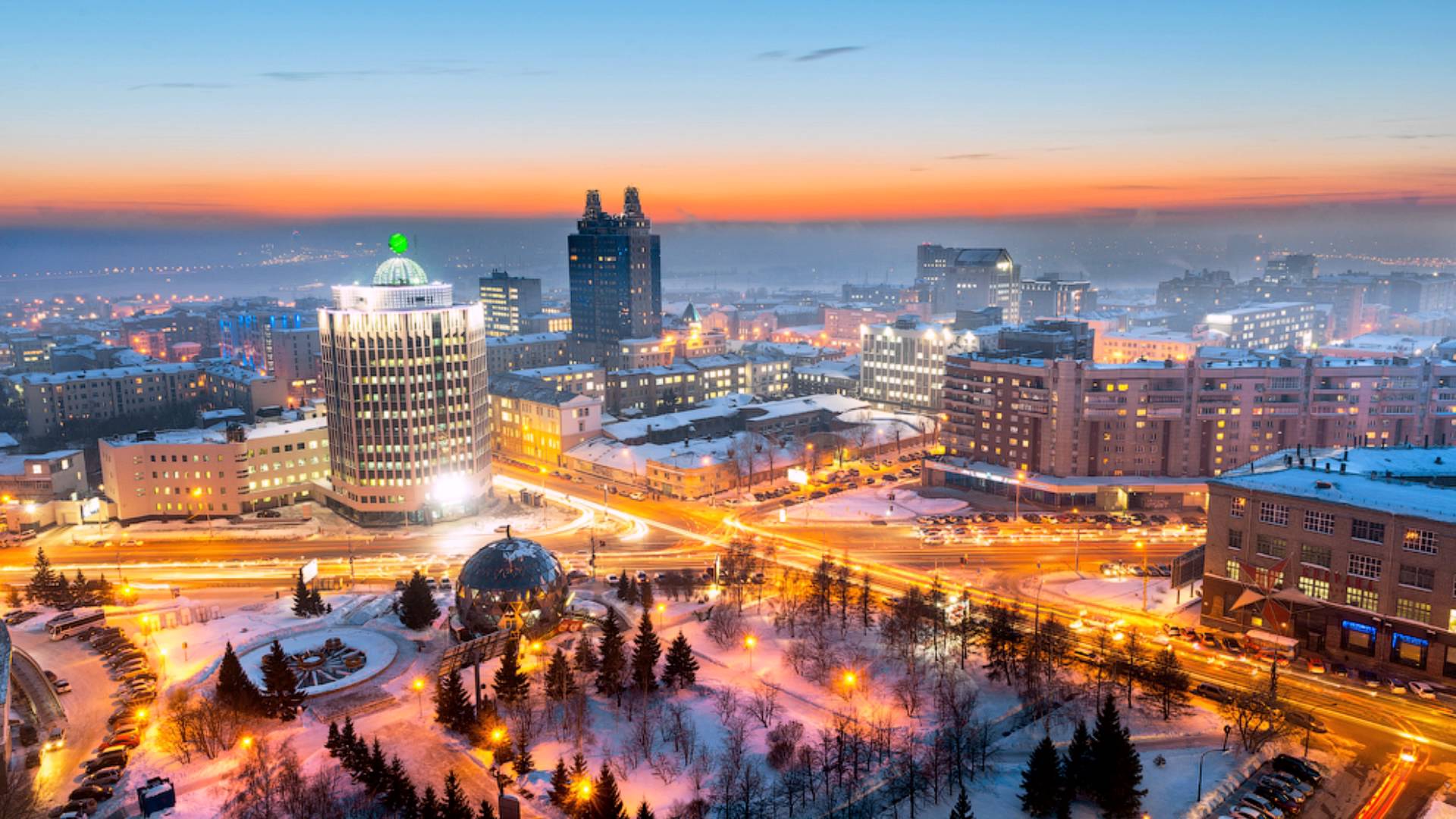|
Gennadi Poloka
Gennadi Ivanovich Poloka (russian: Генна́дий Ива́нович Поло́ка; 15 July 1930, Kuybyshev – 5 December 2014, Moscow) was a Soviet and Russian film director, screenwriter, producer and actor. People's Artist of Russia (1998). IV Class Order "For Merit to the Fatherland" (2011). Early years Gennadi Poloka was born in Kuybyshev (now Samara). His family name comes from his Slovak great-grandfather who left Austria-Hungary for the Russian Empire just before the start of the World War I, saving from ethnic cleansing of Slavs. Poloka commented on his ethnicity: ''I come from a multinational family: there were Poles, Germans, Ukrainians... I have a strange surname. Every time I arrive in some country, there's always a question at the press-conference about my ethnicity. But I have a straight answer: 'I am Russian'. I really love Russia and can't live more than ten days abroad''. Poloka decided to become a film director since the age of 10, after he saw The Gre ... [...More Info...] [...Related Items...] OR: [Wikipedia] [Google] [Baidu] |
Samara, Russia
Samara ( rus, Сама́ра, p=sɐˈmarə), known from 1935 to 1991 as Kuybyshev (; ), is the largest city and administrative centre of Samara Oblast. The city is located at the confluence of the Volga and the Samara rivers, with a population of over 1.14 million residents, up to 1.22 million residents in the urban agglomeration, not including Novokuybyshevsk, which is not conurbated. The city covers an area of , and is the eighth-largest city in Russia and tenth agglomeration, the third-most populous city on the Volga, as well as the Volga Federal District. Formerly a closed city, Samara is now a large and important social, political, economic, industrial, and cultural centre in Russia and hosted the European Union—Russia Summit in May 2007. It has a continental climate characterised by hot summers and cold winters. The life of Samara's citizens has always been intrinsically linked to the Volga River, which has not only served as the main commercial thoroughfare of Russi ... [...More Info...] [...Related Items...] OR: [Wikipedia] [Google] [Baidu] |
Ukrainians
Ukrainians ( uk, Українці, Ukraintsi, ) are an East Slavic ethnic group native to Ukraine. They are the seventh-largest nation in Europe. The native language of the Ukrainians is Ukrainian. The majority of Ukrainians are Eastern Orthodox Christians. While under the Polish–Lithuanian Commonwealth, the Austrian Empire, and then Austria-Hungary, the East Slavic population who lived in the territories of modern-day Ukraine were historically known as Ruthenians, referring to the territory of Ruthenia, and to distinguish them with the Ukrainians living under the Russian Empire, who were known as Little Russians, named after the territory of Little Russia. Cossack heritage is especially emphasized, for example in the Ukrainian national anthem. Ethnonym The ethnonym ''Ukrainians'' came into wide use only in the 20th century after the territory of Ukraine obtained distinctive statehood in 1917. From the 14th to the 16th centuries the western portions of the Europe ... [...More Info...] [...Related Items...] OR: [Wikipedia] [Google] [Baidu] |
The Republic Of ShKID
''The Republic of ShKID'' (russian: Республика ШКИД) is an adventure, partly autobiographical children's novel by and written in 1926 and printed in 1927. The book is about the fate of Russian street boys (''besprizorniks'') who landed in the Fyodor Dostoyevsky School-Commune for Difficult Teenagers. "ШКИД" (ShKID) stands for ''Школа-коммуна имени Достоевского'' (""). In 1966 Lenfilm produced a movie '' The Republic of ShKID'' based on the novel. In 2013 the novel was included into the list recommended by the Ministry of Education and Science (Russia) Ministry of Education and Science of the Russian Federation (russian: Министерство образования и науки Российской Федерации or Minobrnauki of Russia) existed from March 2004 till May 2018. It oversaw .... References Russian children's books Children's novels Russian autobiographical novels 1927 Russian novels Russian nove ... [...More Info...] [...Related Items...] OR: [Wikipedia] [Google] [Baidu] |
The Republic Of ShKID (film)
''The Republic of ShKID'' (russian: Республика ШКИД, Respublika ShKID) is a 1966 Soviet comedy-drama directed by Gennadi Poloka. The premiere of ''The Republic of ShKID'' was held on December 29, 1966; in 1967, the film became a box-office leader – it was seen by 32.6 million viewers (12th place). Synopsis The action takes place in Petrograd in the early 1920s. Throughout the country, as reported in the credits, four million children are homeless. Juvenile offenders are caught by the Cheka and sent to boarding schools and gated colonies. Children who are not chosen by school leaders and colonies are sent to prison. Vikniksor, director of the school-commune named for Dostoevsky, prepares the teaching staff and personnel to welcome the first set of students. They set the table for breakfast, but no one comes to the dining room: the children haven stolen keys from the janitor, Meftahutdyn, and left the school. The children throw the keys into a tree so that it is di ... [...More Info...] [...Related Items...] OR: [Wikipedia] [Google] [Baidu] |
Levan Shengeliya
Levan can refer to: Places * Levan, Berat, a village in the municipality of Berat, Berat County, Albania *Levan, Fier, a village in the municipality of Fier, Fier County, Albania * Levan, Gjirokastër, a village in the municipality of Memaliaj, Gjirokastër County, Albania *Levan, Utah * The town of Levan, Inverclyde, United Kingdom * Levan, Afghanistan People * Levan (name), Georgian masculine given name Buildings * Castle Levan, is a fortified tower house in Levan area of Gourock, Inverclyde, Scotland. Others * Levan Farm was listed on the National Register of Historic Places in 1978. * Levan polysaccharide, a homopolysaccharide which is composed of D-fructofuranosyl * A group of fructans produced by bacteria or created by breaking down other kinds of plant fructans, called levan beta 2→6 * LEVAN (Search Engine), an acronym for Learn Everything About Anything, a visual processing search engine developed by the Allen Brain Institute and the University of Washington. * Alber ... [...More Info...] [...Related Items...] OR: [Wikipedia] [Google] [Baidu] |
Kapron Fishnet
Nylon 6 or polycaprolactam is a polymer, in particular semicrystalline polyamide. Unlike most other nylons, nylon 6 is not a condensation polymer, but instead is formed by ring-opening polymerization; this makes it a special case in the comparison between condensation and addition polymers. Its competition with nylon 6,6 and the example it set have also shaped the economics of the synthetic fibre industry. It is sold under numerous trade names including Perlon (Germany), Dederon (former East Germany), Nylatron, Capron, Ultramid, Akulon, Kapron (former Soviet Union and satellite states), Rugopa (Turkey) and Durethan. History Polycaprolactam was developed by Paul Schlack at IG Farben in late 1930s (first synthesized in 1938) to reproduce the properties of Nylon 66 without violating the patent on its production. (Around the same time, Kohei Hoshino at Toray also succeeded in synthesizing nylon 6.) It was marketed as Perlon, and industrial production with a capacity of 3,500 tons pe ... [...More Info...] [...Related Items...] OR: [Wikipedia] [Google] [Baidu] |
Boris Barnet
Boris Vasilyevich Barnet (russian: Бори́с Васи́льевич Ба́рнет; 18 June 1902 – 8 January 1965) was a Soviet film director, actor and screenwriter of British heritage. He directed 27 films between 1927 and 1963. Barnet was awarded the title Merited Artist of the Russian Federation in 1935, and Merited Artist of the Ukrainian SSR in 1951. Early years Boris Barnet was born in Moscow. His grandfather Thomas Barnet was a printer who moved to the Russian Empire from the United Kingdom in the 19th century. A student of the Moscow Art School, he volunteered to join the Red Army at age 18 and was then professionally involved in boxing. In 1923, Barnet graduated from the Central Military School for Physical Education and worked as a sports teacher. At the same time he studied in Lev Kuleshov’s film workshop. Barnet was cast as Cowboy Jeddy in the slapstick '' The Extraordinary Adventures of Mr. West in the Land of the Bolsheviks'' (1924) by Kuleshov. Its pop ... [...More Info...] [...Related Items...] OR: [Wikipedia] [Google] [Baidu] |
Grigori Aleksandrov
Grigori Vasilyevich Aleksandrov or Alexandrov (russian: Григо́рий Васи́льевич Алекса́ндров; original family name was Мормоненко or Mormonenko; 23 January 1903 – 16 December 1983) was a prominent Soviet film director who was named a People's Artist of the USSR in 1947 and a Hero of Socialist Labour in 1973. He was awarded the Stalin Prizes for 1941 and 1950. Initially associated with Sergei Eisenstein, with whom he worked as a co-director, screenwriter and actor, Aleksandrov became a major director in his own right in the 1930s, when he directed '' Jolly Fellows'' and a string of other musical comedies starring his wife Lyubov Orlova. Though Aleksandrov remained active until his death, his musicals, amongst the first made in the Soviet Union, remain his most popular films. They rival Ivan Pyryev's films as the most effective and light-hearted showcase ever designed for the Stalin-era USSR. Early life and collaboration with Eisenstein ... [...More Info...] [...Related Items...] OR: [Wikipedia] [Google] [Baidu] |
VGIK
The Gerasimov Institute of Cinematography (russian: Всероссийский государственный институт кинематографии имени С. А. Герасимова, meaning ''All-Russian State Institute of Cinematography named after S. A. Gerasimov''), a.k.a. VGIK, is a film school in Moscow, Russia. History The institute was founded in 1919 by the film director Vladimir Gardin as the Moscow Film School and is the oldest film school in the world. From 1934 to 1991 the film school was known as the All-Union State Institute of Cinematography (russian: Всероссийский (ранее Всесоюзный) государственный институт кинематографии). Film directors who have taught at the institute include Lev Kuleshov, Marlen Khutsiev, Aleksey Batalov, Sergei Eisenstein, Mikhail Romm and Vsevolod Pudovkin. Alumni include Sergei Bondarchuk, Elem Klimov, Sergei Parajanov, Alexander Sokurov and Andrei Tark ... [...More Info...] [...Related Items...] OR: [Wikipedia] [Google] [Baidu] |
Mikhail Shchepkin Higher Theatre School
The Mikhail Semyonovich Shchepkin Higher Theatre School (Institute) is a drama school associated with the Maly Theatre (Moscow), State Academic Maly Theatre in Moscow. It was established in 1809 by decree of Alexander I of Russia. History Since 1938, the school has been named after Mikhail Shchepkin, a prominent Russian actor and college teacher in the period from 1830 until his death in 1863. With the direct assistance of the Shchepkin School in 1863 received a building on Neglinnaya Street, where it remains to this day. In 1943, the school received the status of a higher educational institution. The rector of the school is Professor Boris Nikolaevich Lyubimov, Merited Artist of the Russian Federation, Honored Artist of the Russian Federation. References External links * * Drama schools in Russia Performing arts education in Russia Cultural heritage monuments of regional significance in Moscow {{Russia-school-stub ... [...More Info...] [...Related Items...] OR: [Wikipedia] [Google] [Baidu] |
Novosibirsk
Novosibirsk (, also ; rus, Новосиби́рск, p=nəvəsʲɪˈbʲirsk, a=ru-Новосибирск.ogg) is the largest city and administrative centre of Novosibirsk Oblast and Siberian Federal District in Russia. As of the 2021 Census, it had a population of 1,633,595, making it the most populous city in Siberia and the third-most populous city in Russia. The city is located in southwestern Siberia, on the banks of the Ob River. Novosibirsk was founded in 1893 on the Ob River crossing point of the future Trans-Siberian Railway, where the Novosibirsk Rail Bridge was constructed. Originally named Novonikolayevsk ("New Nicholas") in honor of Emperor Nicholas II, the city rapidly grew into a major transport, commercial, and industrial hub. Novosibirsk was ravaged by the Russian Civil War but recovered during the early Soviet period and gained its present name, Novosibirsk ("New Siberia"), in 1926. Under the leadership of Joseph Stalin, Novosibirsk became one of the large ... [...More Info...] [...Related Items...] OR: [Wikipedia] [Google] [Baidu] |





